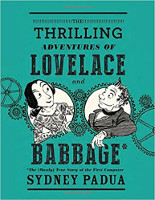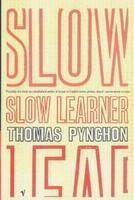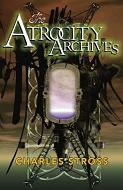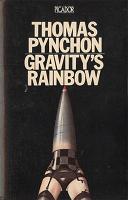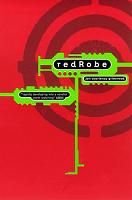 Jon Courtenay-Grimwood is a British journalist and writer, with, to date, 12 fiction novels to his name (the latest - The Fallen Blade, is the 1st instalment in his Vampire Assassin Trilogy and came out in February 2011). He has won the BSFA award twice now, although neither of these was for redRobe, the standalone novel at hand (his 4th, incidentally).
Jon Courtenay-Grimwood is a British journalist and writer, with, to date, 12 fiction novels to his name (the latest - The Fallen Blade, is the 1st instalment in his Vampire Assassin Trilogy and came out in February 2011). He has won the BSFA award twice now, although neither of these was for redRobe, the standalone novel at hand (his 4th, incidentally).
The story kicks off in Day Effe, Mexico, with Axl O'Higgins Borja going back to his old job as hit-man, as he's got bills to pay. He messes up, and gets caught by the police – not good, as the default penalty for assassination in Mexico is death. But Axl has a history – he once saved the life of the man who is now known as Cardinal Santo Duce, top man in the Catholic Church in Mexico, and a power factor on par with the new Empress.
The Cardinal grants Axl a stay of execution (it's the second time he's had to call in this favour...) so he can do a job for him. No, not to kill someone, but to find Pope Joan, or, rather (as Pope Joan is dead, and so far hasn't been re-incarneted by the Catholic Church) her sister, Kate. You see, Pope Joan, instead of nicely playing along with what people wanted her to say and do, gutted the Vatican Bank and spent the money as it always should have been spent. On food for the poor, on medicine, but mostly in airlifting the destitute and starving out of war zones and into transit camps where they could be shipped to Samsara.
Samsara is a giant, ring-shaped, rotating habitat, known as The Wheel of God or Tibet Reborn. It is ruled by the Dalai Lama, and run by an AI known as Tsongkapa. Samsara is in full swing, and is accepting refugees as fast as it can, even if it's still being constructed and improved; it has thin air, a low temperature, and only a thin layer of topsoil, created from donated corpses and fugees who didn't make it in the end (“Dust to dust, flesh to earth”. Loving it.)
The world the story plays in is indeed a brave new one, where appliances (and guns) have AIs that answer, give advice, argue, and display rather a lot of attitude. Medicine seems to have taken a huge step forwards, too, including cloning, and recording of memories and behavioural traits which can then be re-implanted into the new clone.
There seems to be a very casual attitude towards cruelty and violence against the person – it's not entirely clear if that's the world the story plays in, or just this strata of society (or the writer?). One notable concept is a TV/Satellite show called WarChild (Axl is a past star of the show), which follows Child Soldiers wired for sound and visuals. Reality TV gone another few steps across the line it should never have crossed in the first place.
Grimwood doesn't really hold back with his opinion re. African (or generally 3rd world) conflicts, and of those who are running, financing, and equipping them. Never mind the UN and its PaxForce conscripts for hire...
Axl has a soundtrack in his head, reacting and responding to physical clues – I see why one would want to have this, but I also suspect that Grimwood is secretly indulging this cinematographic fantasies through this. My personal soundtrack to the story were electronically enhanced dance versions of medieval music.
The book is told in the 1st person, following several protagonists in turn, plus some flashbacks into Axl's personal history (hint: not always edifying or reflecting well on humanity). The beginning of the story is dense, terse, with a definite and immersive vibe. Sadly the book loses this a bit halfway through, and becomes less focused if not even slightly rambling in parts. Some of the characters are very vivid and jump of the page, whilst other remain in two dimensions, but there's a good chance that that's as much me as the author, of course. I especially found Axl to be inconsistent from that perspective, sometimes he comes to life and takes you with him, but at other points he remains surprisingly static. He also is being misrepresented – the book keeps telling us how he knows exactly do things, whilst the plot shows very clearly that, without regular external intervention to save his sorry skin, he would be every so toast; essentially he's a very very lucky loser.
Some of the storytelling creates false suspense by withholding key facts or events from the reader, and then referring to them, which I found distracted from the story and thus entirely unnecessary. I could also have done without the multiple sex scenes – not even because they're badly written (they're not), but they don't add anything to the story or characters in my opinion.
So, overall, not a completely unmitigated pleasure, but generally well written and plotted, set in an interesting world, and with a good drive to the story. Read if you get your hands on a copy, I would recommend.
More Jon Courtenay-Grimwood
Title: redRobe
Author: Jon Courtenay Grimwood
Reviewer: Markus Thierstein
Reviewer URL: http://thierstein.net
Publisher: Earthlight (Simon & Schuster imprint)
Publication Date: 2000
Review Date: 110326
ISBN: 0671022601
Price: UKP 6.99
Pages: 360
Format: Paperback
Topic: SF
Topic: Post-Cyberpunk


